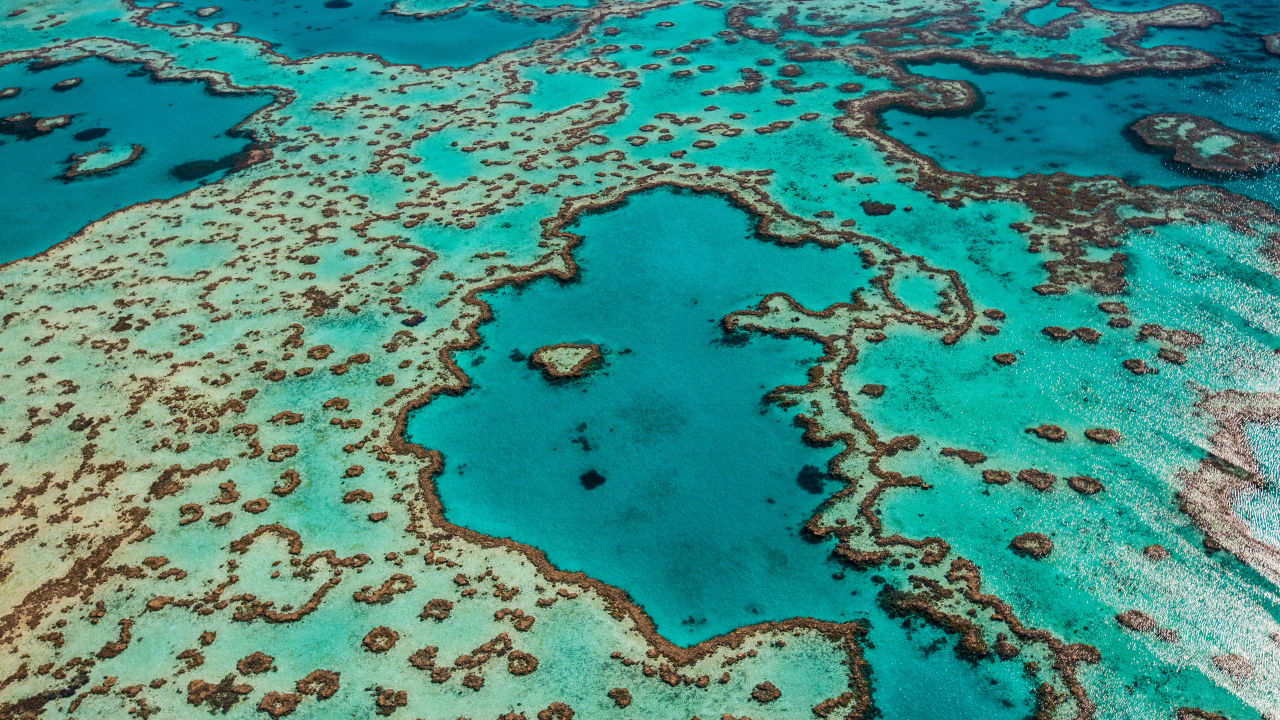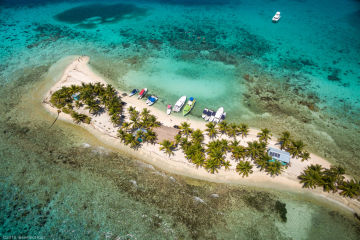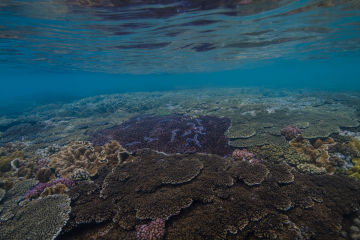Media Release ·
Coral, Climate Change and Community: How Resilience is the Key to Survival

A world first project is aimed at providing key World-Heritage listed coral reef sites with the best possible chance at survival by building resilience in the face of climate change.
Based on the highly successful efforts of 100 Resilient Cities – Pioneered by The Rockefeller Foundation (100RC), the Resilient Reefs project is the first time coral reef managers will partner with global climate resilience experts and local community stakeholders to build and embed resilience into their management of World Heritage sites. The Resilient Reefs project will leverage the Resilience Strategy process created and implemented by 100RC in its 100-city global network and apply it at coral reef sites around the globe. Work has commenced in Palau, with Palau’s reef managers applying the tools pioneered by 100RC.
Coral reef resilience is the capacity of coral reef ecosystems and the individuals, businesses and communities that depend upon them to survive, adapt and recover in the face of the stresses and shocks they experience. Climate change is the biggest threat to coral reefs globally, with the Intergovernmental Panel on Climate Change predicting that coral reefs would decline by 70-90% with global warming of 1.5 degrees. The impact of climate change on coral reefs around the world means that the window to act is narrowing, so the timing and delivery of this project is critical to their survival, in addition to a reduction in greenhouse gas emissions.
With ‘business as usual’ approaches falling short of creating the impact needed to sustain coral reefs globally, a collaboration of partners has developed a new way of thinking to respond to the scale and severity of the challenge posed by climate change to coral reefs.
Sam Carter, Director, Resilience Accelerator, 100 Resilient Cities, said “We have seen how resilience thinking is positioning cities around the world to survive and thrive in the face of challenges such as climate change. We are thrilled to take this next step and partner with the Great Barrier Reef Foundation to apply the 100 Resilient Cities model to coral reef communities.”
100RC will dedicate resources through its Resilience Accelerator program to deploy support for a select number of projects that the Resilient Reefs Strategy creates. Additional technical support will be provided by 100RC partners at Columbia University.
The project builds the capacity of reef managers to work locally and enables a global network of marine managers to create innovative approaches to protect coral reefs and then share new techniques to fast track the survival of coral reefs in hot spots around the globe.
The initial sites are the Lagoons of New Caledonia, Palau’s Rock Islands, Australia’s Great Barrier Reef and Ningaloo Coast, and the Belize Barrier Reef.
Fanny Douvere, head of UNESCO's World Heritage Centre Marine Programme, said “While limiting global warming consistent with the United Nations Framework Convention on Climate Change (UNFCCC) Paris Agreement, is critical for the future survival of World Heritage Listed coral reefs, at the local level, sites need to focus on building resilience to give them the best chance to adapt to a changing climate.”
For countries such as Palau, building resilience to climate change is important for both their coral reef and the community itself.
The Governor of the State of Koror in Palau, Governor Gibbon, said that, “We urgently need to accelerate our efforts to build the resilience of coral reefs. The health of our coral reefs impacts our communities, our cultural heritage, and coastal protection from storms and other extremes. This project will give us new tools to build resilience across our community.”
A collaborative approach between reef communities at the five sites could prove to be just the beginning – a pilot for the Resilient Reefs model with the learnings applied to many other reef communities in the future.
Anna Marsden, Managing Director of the Great Barrier Reef Foundation said, “This is a game changer for reef management. The survival of our coral reefs is time critical. Individual countries can play their part but together we can fast-track the learnings and the outcomes from these five sites and apply these new techniques to build resilience in reefs and reef communities globally.”
The project is a crucial step forward, bridging coral reef restoration knowledge with global climate resilience adaptation strategies. The design and definition phase started in 2016, with the BHP Foundation approving the four-year US$9 million in December 2017. The project will deliver a wide range of resources and funding to support coral reef managers as they develop new strategies and on-ground actions to build reef resilience.
Support provided to the sites includes:
- Capacity building for local reef managers and stakeholders;
- Support in the creation and funding of a new Chief Resilience Office (CRO) position, who will be responsible for leading the site’s resilience building efforts
- Development of a holistic Resilience Strategy focused on risk analysis and stakeholder engagement
- Initial funding to implement actions designed in the strategy
- Connection to a global “Knowledge Network” that supports learning exchanges among the five sites and scales ‘lessons learned’ to reef managers globally
James Ensor, Chief Executive Officer of the BHP Foundation said, “The aim of the project is ambitious – local in implementation and global in implication. This is consistent with the strategy of the Foundation’s Environmental Resilience Global Signature Program, joining two other projects that take on large-scale conservation challenges in some of the world’s most precious and at-risk ecosystems.”
“This project will enable coral reefs and the people in reef communities that depend on them to build their resilience to climate change during a critical period as the world transitions to a low carbon economy in line with the findings of the IPCC,” said Mr Ensor.
The project is a collaboration between UNESCO World Heritage Centre, 100 Resilient Cities—Pioneered by The Rockefeller Foundation, BHP Foundation, The Nature Conservancy’s Reef Resilience Network, the Great Barrier Reef Foundation and AECOM as the implementation partner.
Media contact: Louise Sturgess +61 409 352 493 | lsturgess@barrierreef.org
Background information, images, vision via Dropbox
Vision: Infographic explainer video available in Dropbox





